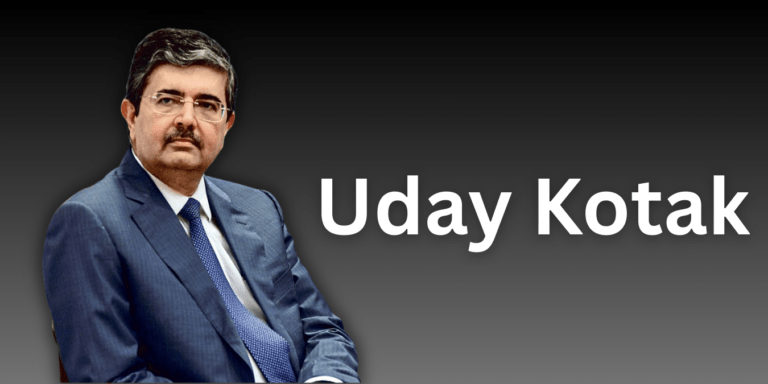
In a landmark judgment that has far-reaching implications for family law and inheritance rights in India, the Kerala High Court has ruled that family pension is not subject to testamentary disposition. This means that a husband cannot exclude his wife and children from receiving family pension benefits by filing an application or making a will. The judgment reinforces the statutory nature of family pension and underscores the importance of protecting the financial security of dependents. In this detailed article, we will explore the background of the case, the legal principles involved, the court’s reasoning, and the broader implications of this ruling for families across India.
” The Kerala High Court has ruled that family pension is not subject to testamentary disposition, meaning a husband cannot exclude his wife and children from receiving it. This landmark judgment protects the rights of dependents, ensuring financial security for spouses and children. Learn about the legal implications, statutory nature of family pension, and how to safeguard your rights. Discover the importance of compliance, filing claims promptly, and seeking legal advice to avoid disputes. Stay informed about inheritance laws and the Kerala HC’s ruling to ensure fair distribution of pension benefits. Read more for a detailed analysis. “
Background of the Case
The Kerala High Court’s ruling came in response to a specific case where a husband attempted to exclude his wife and children from receiving family pension benefits after his death. The husband had filed an application seeking to designate someone other than his legal heirs (spouse and children) as the beneficiary of his family pension. He argued that since he was the pensioner, he had the right to decide who should receive the pension after his death.
However, the court rejected this argument, holding that family pension is a statutory benefit meant for the financial security of dependents and cannot be treated as personal property that can be disposed of through a will or testamentary disposition. The court emphasized that the purpose of family pension is to provide financial support to the spouse and children of the deceased pensioner, and this purpose cannot be undermined by the pensioner’s unilateral decisions.
Key Legal Principles Involved
The Kerala High Court’s judgment is rooted in several key legal principles, which are essential to understanding the ruling:
- Statutory Nature of Family Pension: Family pension is governed by specific pension rules and regulations, which are statutory in nature. These rules outline who is eligible to receive family pension and under what conditions. The court held that family pension is not a personal asset of the pensioner but a statutory benefit designed to support dependents.
- Rights of Legal Heirs: Under Indian law, legal heirs, including the spouse and children, have a right to claim family pension benefits. These rights are protected under various laws, including the Hindu Succession Act, 1956, and the pension rules applicable to government employees. The court reaffirmed that these rights cannot be overridden by a pensioner’s will or testamentary disposition.
- Purpose of Family Pension: The primary purpose of family pension is to provide financial security to the dependents of a deceased pensioner. The court emphasized that this purpose must be upheld, and any attempt to exclude legal heirs from receiving pension benefits would defeat the very objective of the pension scheme.
- Testamentary Disposition: Testamentary disposition refers to the distribution of assets through a will. The court clarified that family pension is not an asset that can be disposed of through a will. It is a statutory benefit that automatically devolves to the legal heirs upon the death of the pensioner.
The Court’s Reasoning
The Kerala High Court’s judgment is based on a thorough analysis of the legal framework governing family pension and the rights of dependents. Here are the key points of the court’s reasoning:
- Family Pension is Not Personal Property: The court held that family pension is not the personal property of the pensioner. It is a statutory benefit provided under the relevant pension rules, and its distribution is governed by these rules. Therefore, the pensioner does not have the authority to decide who should receive the pension after his death.
- Protection of Dependents: The court emphasized that the primary purpose of family pension is to protect the financial interests of dependents, particularly the spouse and children. Allowing a pensioner to exclude legal heirs from receiving pension benefits would leave them financially vulnerable, which is contrary to the intent of the pension scheme.
- No Testamentary Disposition Allowed: The court clearly stated that family pension is not subject to testamentary disposition. This means that the pensioner cannot use a will or any other legal instrument to exclude legal heirs from receiving pension benefits. The pension automatically devolves to the legal heirs as per the applicable pension rules.
- Legal Heirs’ Rights are Paramount: The court reaffirmed that the rights of legal heirs to claim family pension are paramount. These rights are protected under the law, and any attempt to bypass them through a will or application is invalid.
Implications of the Judgment
The Kerala High Court’s ruling has significant implications for families, pensioners, and the legal system. Here are some of the key implications:
- Protection of Spouses and Children: The judgment provides much-needed protection to spouses and children who rely on family pension for their financial security. It ensures that they cannot be arbitrarily excluded from receiving pension benefits, regardless of the pensioner’s wishes.
- Clarification on Pension Rights: The ruling clarifies that family pension is a statutory benefit and not personal property. This clarification is important for preventing disputes and ensuring that pension benefits are distributed fairly and in accordance with the law.
- Precedent for Future Cases: The judgment sets a precedent for future cases involving family pension disputes. It provides a clear legal framework for resolving such issues and ensures that similar cases are adjudicated consistently.
- Strengthening of Inheritance Laws: The ruling strengthens inheritance laws by reinforcing the rights of legal heirs. It prevents any attempts to bypass legal heirs through wills or applications, ensuring that dependents are not left financially vulnerable.
- Awareness and Compliance: The judgment raises awareness about the rights of dependents and the statutory nature of family pension. It also emphasizes the importance of complying with the law and ensuring that pension benefits are distributed fairly.
What This Means for Families
The Kerala High Court’s judgment has a direct impact on families, particularly those who rely on family pension for their financial stability. Here’s what it means for different family members:
- For Spouses: The ruling ensures that spouses cannot be excluded from receiving family pension benefits. It provides financial security to widows and widowers, ensuring that they are not left without support after the death of their partner.
- For Children: The judgment protects the rights of children to claim family pension benefits. It ensures that they receive their due share, regardless of any testamentary disposition by the pensioner.
- For Pensioners: The ruling clarifies that pensioners cannot dispose of family pension benefits through a will or application. It reinforces the statutory nature of family pension and the rights of dependents.
- For Legal Heirs: The judgment strengthens the rights of legal heirs, ensuring that they cannot be arbitrarily excluded from family pension benefits. It provides a legal safeguard against any attempts to bypass their claims.
How to Ensure Compliance with the Judgment
Given the Kerala High Court’s ruling, it is essential for families to ensure compliance with the judgment to avoid any legal disputes. Here are some steps to consider:
- Understand Your Rights: It is crucial for family members to understand their rights regarding family pension. Spouses and children should be aware that they cannot be excluded from receiving pension benefits.
- Seek Legal Advice: If there are any disputes or concerns regarding family pension, it is advisable to seek legal advice. A qualified lawyer can provide guidance on how to protect your rights and ensure compliance with the judgment.
- Review Existing Wills: If you have a will that includes provisions related to family pension, it is essential to review and update it in light of the Kerala High Court’s ruling. Ensure that the will does not attempt to exclude legal heirs from pension benefits.
- File Claims Promptly: In the event of the pensioner’s death, legal heirs should promptly file claims for family pension benefits. Delays in filing claims can lead to complications and potential disputes.
The Kerala High Court’s judgment that family pension is not subject to testamentary disposition is a significant ruling that protects the rights of dependents. It ensures that spouses and children cannot be arbitrarily excluded from receiving family pension benefits, providing them with much-needed financial security. This ruling reinforces the statutory nature of family pension and sets a precedent for future cases involving pension disputes.
For families, it is essential to understand their rights and take steps to ensure compliance with the judgment. Seeking legal advice, reviewing existing wills, and promptly filing claims are crucial steps to protect your rights and avoid legal disputes.
As the legal landscape continues to evolve, it is important to stay informed about changes in family law and inheritance rights. The Kerala High Court’s ruling is a reminder of the importance of protecting the financial security of dependents and ensuring that family pension benefits are distributed fairly and justly.
-
Tax Professionals Reveal: The Real Reason Your Refund Takes Longer Than IRS Says
Filed early but still waiting? The IRS is legally holding millions of refunds until March 2—even for January
-
Nokia’s Patent Victory: Why You Can’t Buy Acer and ASUS Laptops in Germany Anymore
Nokia just weaponized a hidden patent inside every laptop you own—and two tech giants can’t sell in Germany
-
Elon Musk Reveals X’s Game-Changing Smart Cashtags for Instant Crypto and Stock Trades
X will let you trade stocks and crypto straight from your timeline in weeks via Smart Cashtags. No app-switching, just






























